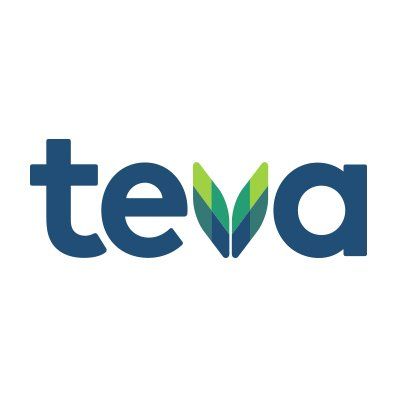PALO ALTO, Calif., Jan. 30, 2026 (GLOBE NEWSWIRE) -- Scilex Holding Company (“Scilex” or the “Company”) (Nasdaq: SCLX), an innovative revenue-generating company focused on acquiring, developing and commercializing non-opioid pain management products for the treatment of acute and chronic pain and neurodegenerative and cardiometabolic disease, today announced that it has made a $20 million strategic investment in Quantum Scan Holdings, Inc. (“Quantum Scan”), a breakthrough medical technology company, targeting trillion-dollar market of preventive diagnosis and prognosis of human diseases and illness. The investment is intended to support Quantum Scan’s ongoing efforts to identify, develop, and deploy innovative medical technologies, including advanced diagnostic platforms, integrated analytics, and scalable healthcare solutions designed to improve accessibility and efficiency across clinical and non-traditional care settings. Scilex believes this strategic investment is synergistic with its large investment in Datavault AI (Nasdaq: DVLT) (“Datavault”). Mustaq Patel, Chief Executive Officer of Quantum Scan, stated: “We are grateful to Scilex for their strategic investment and confidence in our team and vision. The need for continued innovation in medical technologies has never been greater. This capital enables Quantum Scan to accelerate its focus on forward-looking healthcare solutions and to invest in technologies that we believe can deliver long-term value and meaningful impact across the healthcare ecosystem.” Henry Ji, Ph.D., Chairman and Chief Executive Officer of Scilex Holding Company, commented: “Quantum Scan is led by an experienced team with a clear focus on innovation, revenue-generation, disciplined execution, and potential large long-term value creation. We believe this investment complements Scilex’s strategic priorities and provides an opportunity to support the development of innovative medical technology platforms aligned with our broader commitment to advancing healthcare solutions.” For more information on Scilex Holding Company, refer to www.scilexholding.com For more information on Semnur Pharmaceuticals, Inc., refer to www.semnurpharma.com For more information on ZTlido® including Full Prescribing Information, refer to www.ztlido.com. For more information on ELYXYB®, including Full Prescribing Information, refer to www.elyxyb.com. For more information on Gloperba®, including Full Prescribing Information, refer to www.gloperba.com. https://www.facebook.com/scilex.pharm https://www.linkedin.com/company/scilex-holding-company/ info@scilexholding.com About Scilex Holding Company Scilex is an innovative revenue-generating company focused on acquiring, developing and commercializing non-opioid pain management products for the treatment of acute and chronic pain and neurodegenerative and cardiometabolic disease. Scilex targets indications with high unmet needs and large market opportunities with non-opioid therapies for the treatment of patients with acute and chronic pain and is dedicated to advancing and improving patient outcomes. Scilex’s commercial products include: (i) ZTlido® (lidocaine topical system) 1.8%, a prescription lidocaine topical product approved by the U.S. Food and Drug Administration (the “FDA”) for the relief of neuropathic pain associated with postherpetic neuralgia, which is a form of post-shingles nerve pain; (ii) ELYXYB®, a potential first-line treatment and the only FDA-approved, ready-to-use oral solution for the acute treatment of migraine, with or without aura, in adults; and (iii) Gloperba®, the first and only liquid oral version of the anti-gout medicine colchicine indicated for the prophylaxis of painful gout flares in adults. In addition, Scilex has three product candidates: (i) SP-102 (10 mg, dexamethasone sodium phosphate viscous gel) (“SEMDEXA” or “SP-102”), which is owned by Semnur (a majority owned subsidiary of Scilex) and is a novel, viscous gel formulation of a widely used corticosteroid for epidural injections to treat lumbosacral radicular pain, or sciatica, for which Scilex has completed a Phase 3 study and was granted Fast Track status from the FDA in 2017; (ii) SP-103 (lidocaine topical system) 5.4%, (“SP-103”), a next-generation, triple-strength formulation of ZTlido, for the treatment of acute pain and for which Scilex has recently completed a Phase 2 trial in acute low back pain. SP-103 has been granted Fast Track status from the FDA in low back pain; and (iii) SP-104 (4.5 mg, low-dose naltrexone hydrochloride delayed-release capsules) (“SP-104”), a novel low-dose delayed-release naltrexone hydrochloride being developed for the treatment of fibromyalgia. Scilex is headquartered in Palo Alto, California. About Quantum Scan Holdings, Inc. Quantum Scan Holdings, Inc. is a medical technology and innovation company focused on the development and investment in advanced healthcare technologies. Quantum Scan’s activities include medical platforms, diagnostics, analytics, and related innovations aimed at enhancing healthcare delivery, accessibility, and clinical insight. Forward-Looking Statements This press release includes forward-looking statements that involve risks and uncertainties. Forward-looking statements are statements that are not historical facts and may be accompanied by words that convey projected future events or outcomes, such as “believe,” “may,” “will,” “estimate,” “continue,” “anticipate,” “intend,” “expect,” “should,” “would,” “plan,” “predict,” “potential,” “seem,” “seek,” “future,” “outlook” or variations of such words or by expressions of similar meaning. These forward-looking statements include, but are not limited to, statements regarding future events, Quantum Scan’s prospects, plans and goals, Scilex’s intellectual property goals and processes, future opportunities for Scilex and its subsidiaries, the future business strategies, long-term objectives and commercialization plans of Scilex and its subsidiaries, the current and prospective product candidates, planned clinical trials and preclinical activities and potential product approvals, as well as the potential for market acceptance of any approved products and the related market opportunity of Scilex and its subsidiaries, statements regarding SP-102, if approved by the FDA, Scilex’s potential to attract new capital and avoid the effects of negative debt leverage and other statements that are not historical facts. These statements are based on management’s current expectations and are not predictions of actual performance. These forward-looking statements are provided for illustrative purposes only and are not intended to serve as, and must not be relied on, by any investor as a guarantee, an assurance, a prediction or a definitive statement of fact or probability. Actual events and circumstances are difficult or impossible to predict and will differ from assumptions. Many actual events and circumstances are beyond the control of Scilex. These statements are subject to a number of risks and uncertainties regarding Scilex’s business, Quantum Scan’s business and Datavault’s business, and actual results may differ materially. These risks and uncertainties include, but are not limited to, general economic, political and business conditions; the ability of Scilex and its subsidiaries to develop and successfully market products; the ability of Scilex and its subsidiaries to grow and manage growth profitably and retain its key employees; the risk that the potential product candidates that Scilex develops may not progress through clinical development or receive required regulatory approvals within expected timelines or at all; risks relating to uncertainty regarding the regulatory pathway for Scilex’s product candidates; the risk that Scilex’s product candidates may not be beneficial to patients or successfully commercialized; the risk that Scilex has overestimated the size of the target patient population, their willingness to try new therapies and the willingness of physicians to prescribe these therapies; risks that the prior results of the clinical trials may not be replicated; regulatory and intellectual property risks; the risk of failure to realize the anticipated benefits of the transactions contemplated with Datavault and Quantum Scan and other risks and uncertainties indicated from time to time and other risks set forth in Scilex’s filings with the SEC. There may be additional risks that Scilex presently does not know or that Scilex currently believes are immaterial that could also cause actual results to differ from those contained in the forward-looking statements. In addition, forward-looking statements provide Scilex’s expectations, plans or forecasts of future events and views as of the date of the communication. Scilex anticipates that subsequent events and developments will cause such assessments to change. However, while Scilex may elect to update these forward-looking statements at some point in the future, Scilex specifically disclaims any obligation to do so. These forward-looking statements should not be relied upon as representing Scilex’s assessments as of any date subsequent to the date of this communication. Accordingly, investors are cautioned not to place undue reliance on these forward-looking statements. Contacts: Investors and MediaScilex Holding Company 960 San Antonio RoadPalo Alto, CA 94303Office: (650) 516-4310 Email: investorrelations@scilexholding.com Website: www.scilexholding.com SEMDEXA™ (SP-102) is a trademark owned by Semnur Pharmaceuticals, Inc., a majority-owned subsidiary of Scilex Holding Company. A proprietary name review by the FDA is planned. ZTlido® is a registered trademark owned by Scilex Pharmaceuticals Inc., a wholly-owned subsidiary of Scilex Holding Company. Gloperba® is the subject of an exclusive, transferable license to use the registered trademark by Scilex Holding Company. ELYXYB® is a registered trademark owned by Scilex Holding Company. Scilex Bio™ is a trademark owned by Scilex Holding Company, Inc. All other trademarks are the property of their respective owners. © 2026 Scilex Holding Company All Rights Reserved.















